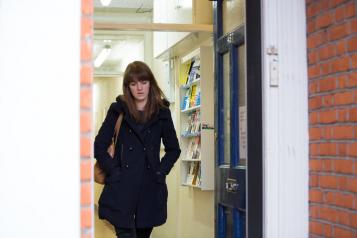What You Need to Know About SAD And How to Manage It

What is SAD
Seasonal affective disorder (SAD) is a type of depression that you experience during particular seasons or times of the year. Its symptoms are usually more severe during the winter months. However, some people with SAD have symptoms during the summer and feel better during the winter.
Causes of SAD
The causes of SAD are not fully understood, but experts often link it to a reduction in sunlight during the shorter autumn and winter days. This lack of sunlight might stop a part of your brain called the hypothalamus working properly. This may affect:
- Melatonin levels – melatonin is a hormone that affects how sleepy you are. People with SAD may produce it in higher levels than normal, making them more sleepy.
- Serotonin levels – serotonin is a hormone that affects your mood, appetite and sleep. A lack of sunlight may lead to lower serotonin levels, which is often linked to depression.
- Body’s internal clock (circadian rhythm) - your body uses sunlight to help time important bodily processes, such as waking up, so a lack of sunlight may disrupt this and lead to SAD
What are the symptoms
Look out for these signs:
-
A constant low mood
-
No pleasure or interest in everyday activities or things you used to enjoy
-
Irritability and anxiety
-
Having little energy and feeling sleepy during the day
-
Feelings of guilt, worthlessness and despair
-
Sleeping for longer than usual and finding it harder to get up in the morning
-
Difficulty concentrating
-
Craving stodgy and sugary carbohydrates and eating more than usual
-
Weight gain
-
Decreased sex drive
-
Not wanting to see friends or family or go outside
If you need support now, contact Samaritans
Whatever you're going through, Samaritans will face it with you. They're available 24 hours a day, 365 days a year. Call them for free at 116 123, or find other ways to contact them here.
When to see a GP
If you think you have SAD and are struggling to cope, consider seeing your GP. The GP may carry out a psychological assessment to check your mental health. Effective treatments are available if you are diagnosed with the condition, such as:
- Talking therapies
- Light therapy
- Antidepressants
If you are over the age of 16 and registered with a GP in Enfield, you can self refer for talking therapies. These can be done in person, digitally, or both. Find out more here.
How to manage SAD and look after yourself
-
Spend as much time in light as possible. Make the most out of natural light. If you can, spend time outdoors everyday. You could go on walks, spend time in parks or gardens, or even just sit near a window. Keep your curtains open during the day to let in as much light as possible.
-
Exercise regularly. The National Institute for Health and Care Excellence (NICE) recommends exercise for depression because it can help with mental wellbeing. Find ways of moving your body that you enjoy. It doesn’t have to be too intensive – if you don’t feel up to going on a run, you can go on a walk or cycle instead.
-
Keep your space light and airy. If you can, make sure your work and home environments are comfortable and help you to relax.
-
Talk to someone. It can be harder to stay connected with friends and family when you’re feeling low. But speaking to someone you trust, such as a friend, family member or healthcare professional can help you get the support you need.
-
Eat a healthy diet. Eating a balanced diet and drinking enough water is important to make sure your brain is working properly. Avoid processed foods and stick to food with lots of nutrients and vitamins. Avoid drinking alcohol too, as this can make you feel worse.
-
Plan ahead. If you recognise a pattern, it might be useful to plan ahead for the difficult days. For example, you could schedule extra time in the evenings to relax, or cook and freeze meals in advance.

